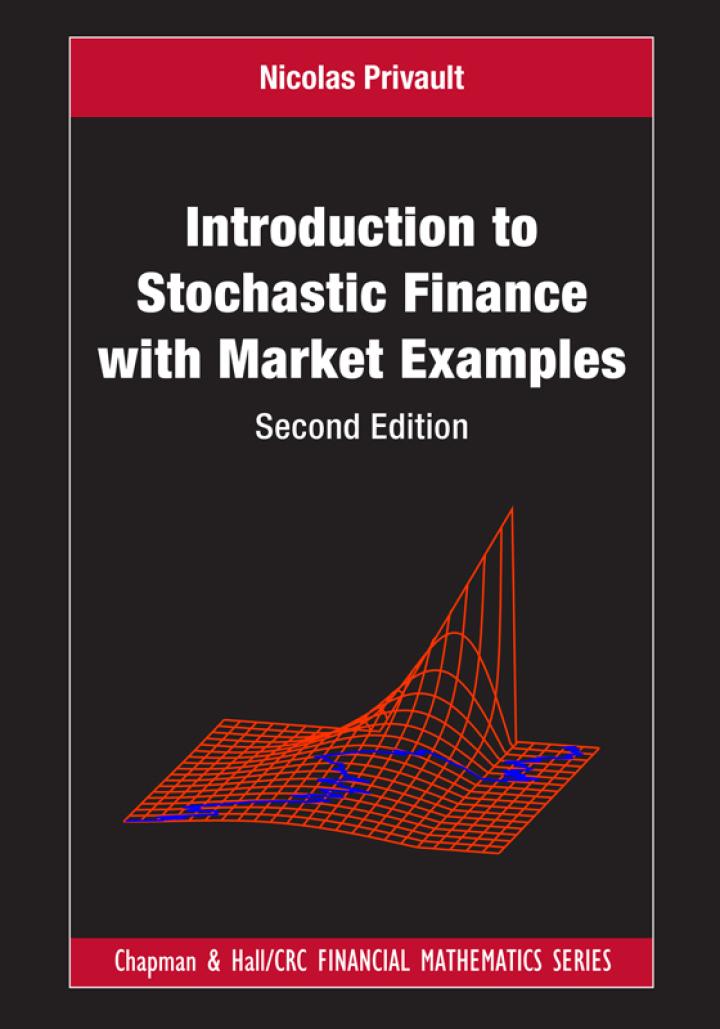Let (left(N_{t} ight)_{t in mathbb{R}_{+}})be a standard Poisson process with intensity (lambda>0), started at (N_{0}=0). a) Is
Question:
Let \(\left(N_{t}\right)_{t \in \mathbb{R}_{+}}\)be a standard Poisson process with intensity \(\lambda>0\), started at \(N_{0}=0\).
a) Is the process \(t \mapsto N_{t}-2 \lambda t\) a submartingale, a martingale, or a supermartingale?
b) Let \(r>0\). Solve the stochastic differential equation
\[d S_{t}=r S_{t} d t+\sigma S_{t^{-}}\left(d N_{t}-\lambda d t\right)\]
c) Is the process \(t \mapsto S_{t}\) of Question (b) a submartingale, a martingale, or a supermartingale?
d) Compute the price at time 0 of the European call option with strike price \(K=\) \(S_{0} \mathrm{e}^{(r-\lambda \sigma) T}\), where \(\sigma>0\).
Fantastic news! We've Found the answer you've been seeking!
Step by Step Answer:
Related Book For 

Introduction To Stochastic Finance With Market Examples
ISBN: 9781032288277
2nd Edition
Authors: Nicolas Privault
Question Posted:





